Enhance clinical performance with Virtual Simulation.
Learn more about the uses & benefits of virtual simulation in PA education on the Kaplan Medical Blog.
Virtual Patient Encounters
Students interact with virtual patients in a comprehensive patient encounter from history to diagnosis to management plans.
- Over 350 graduate cases
- 12 OSCE cases
- Over 230 patient “avatars”
- Participating avatars including mothers for pediatric patients, spouses for adult patients, etc
- Wide range of ages and demographics
- Specialty cases including OB, Peds, surgical, rehab, and mental health
Cases Authored by Experienced Physicians
Each case is based on a patented evidentiary database that is used to assist in case design and ensure “evidence based medicine” is being provided.
Diseases
Tests
Case-specific results
Diagnostic algorithmic tasks
Standardized cases allow for objective, consistent grading across students and instructors
Auto-scoring provides immediate feedback and saves hours of grading time for faculty
24/7 availability on laptops and tablets wherever an internet connection is available
Use Across Education Stages
i-Human Patients was designed to be used across the student’s educational journey. Cases can be configured to scaffold along with curriculum.
Year 1 Students
History & Physical Exam + Diagnosis
- Introduces the history and physical examination process
- Students gain familiarity with electronic health records
- Interactions with virtual patients help students build confidence in communication skills
- Early exposure to ordering tests and diagnosis selection
Institutions using i-Human shared that performance on these types of cases has shown to be a predictor of student readiness for both MCQ exams and early clinic experiences.
Year 2 First Semester
Basic DDx and H&P Optional Configurations
- Basic DDx configuration allows students to hone their skills with patient encounters from history to differential diagnosis
- H & P Optional configuration begins after the history and physical exam, placing the focus on diagnostic reasoning. Students work through DDx, ordering and reviewing tests, and developing a management plan.
The H & P Optional configuration is used by many of our institutional partners in team based learning. Students work together to review the case and discuss their findings in class.
Clinical Practicum
Symptom to Diagnosis
Immerse year 3 and 4 students in the full patient experience with over 70 cases that present as symptoms with 200+ diagnostic reasoning and symptom approach videos. Students become more efficient while broadening their exposure to a varied number of symptoms including:
- Acute Abdominal Pain
- AKI
- Anemia
- Back Pain
- Chest Pain
- Delirium
- Dizziness
- Dyspnea
- GI Bleeding
- Headache
- Hyponatremia
- Syncope
PANCE® Prep
Case Review Configuration
Prompt students to answer questions as they review a case and move through the DDx process, and on to ordering tests, reviewing results, and selecting a definitive diagnosis and management plan.
They’ll be prepared to identify cues and spot trends that will help them answer questions on their board exams.
Organized Structured Clinical Encounters (OSCEs)
Substitute or supplement your standardized patient encounters with virtual simulation.
Featuring 12 cases to use as a formative learning experience or true competency assessment in preparation for clinicals or the Step 2 CS Exam.
- Increase efficiency and reduce costs: Minimize scheduling headaches and reduce costs when your SPs are virtual patients who are available with consistent symptoms 24/7.
- Save time by eliminating scoring: i-Human Patients auto-scores each encounter, freeing up hours of faculty time.
- Truly “standardize” your SP encounters: Use i-Human cases as the basis for your SP encounters to train and educate clinical staff, provide “cheat sheets” for responses, and ensure your students are working from the same set of conditions.
Integrated Learning
Use i-Human Patients to help students understand where their classroom learnings apply to patient encounters.
- Lessons – Provide students with access to lessons from our library to review clinical procedures like how to take a history.
- Exercises – Allow students to dive deep into a topic (like how to perform a heart auscultation) within an appropriate case with an embedded exercise.
- Quizzes – Ensure that students have fully comprehended the topics and lessons with integrated quizzes.
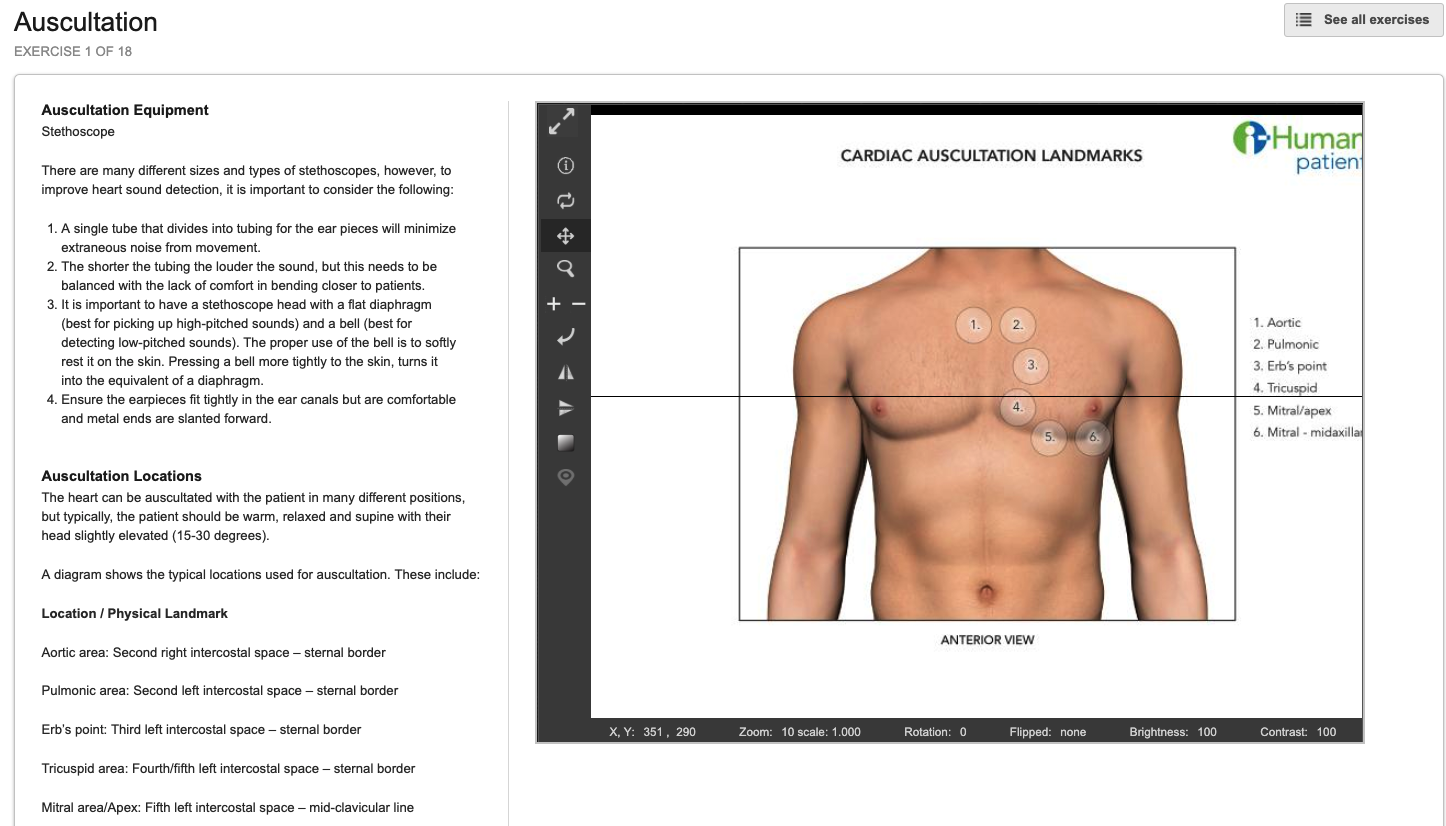
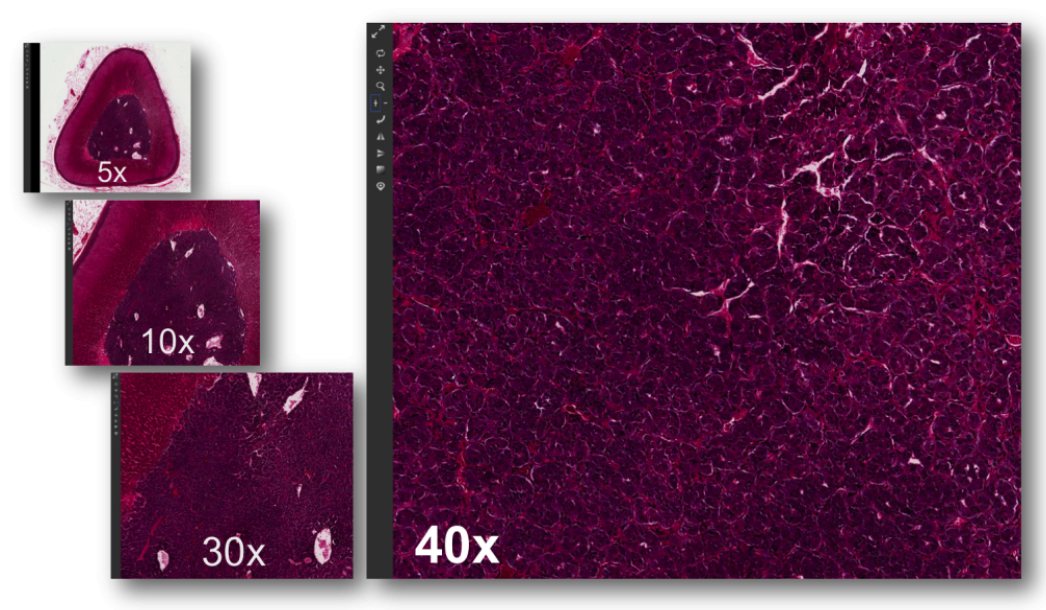
Rich Multimedia Library
Cases and lessons are supported with a rich media library including:
- High-res up to 40x magnification real medical images
- Instructional and procedure videos
- Real patient sounds such as lung and Proctor Harvey heart auscultations, different coughs, pulses, breathing, and more.
Robust Tracking and Reporting
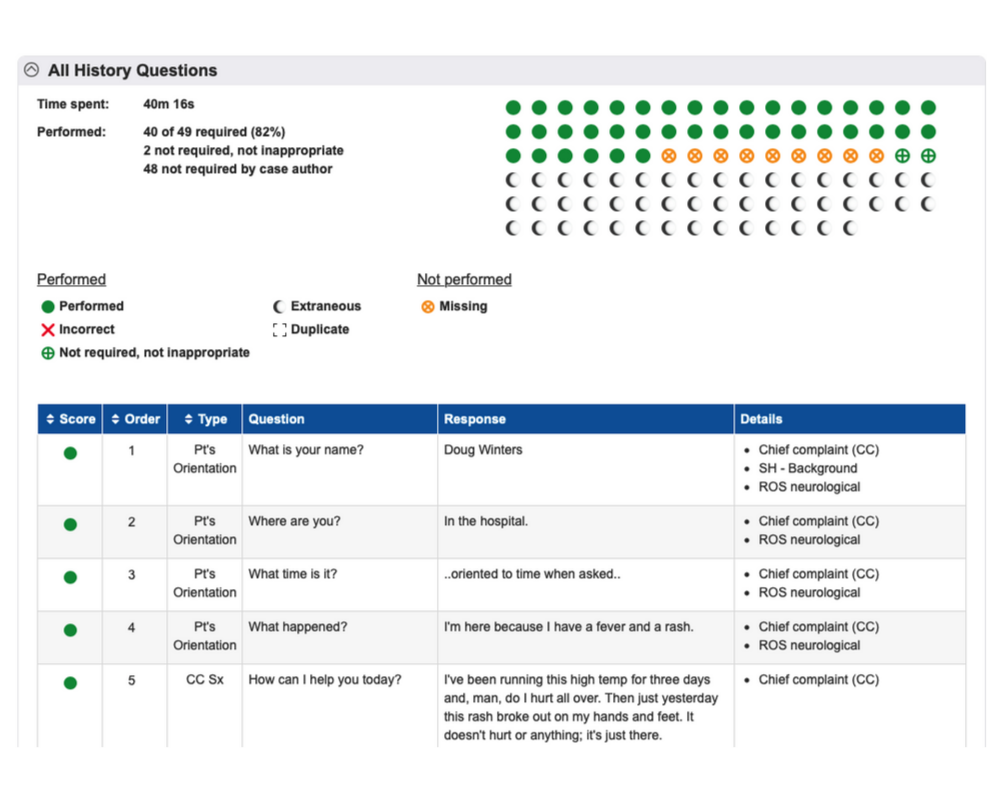
Auto-Scoring and Analytics
We track every keystroke to provide faculty and students with detailed performance stats.
Auto-scoring saves time for faculty. Students will automatically be graded and see what they did right or wrong, as well as what they missed.
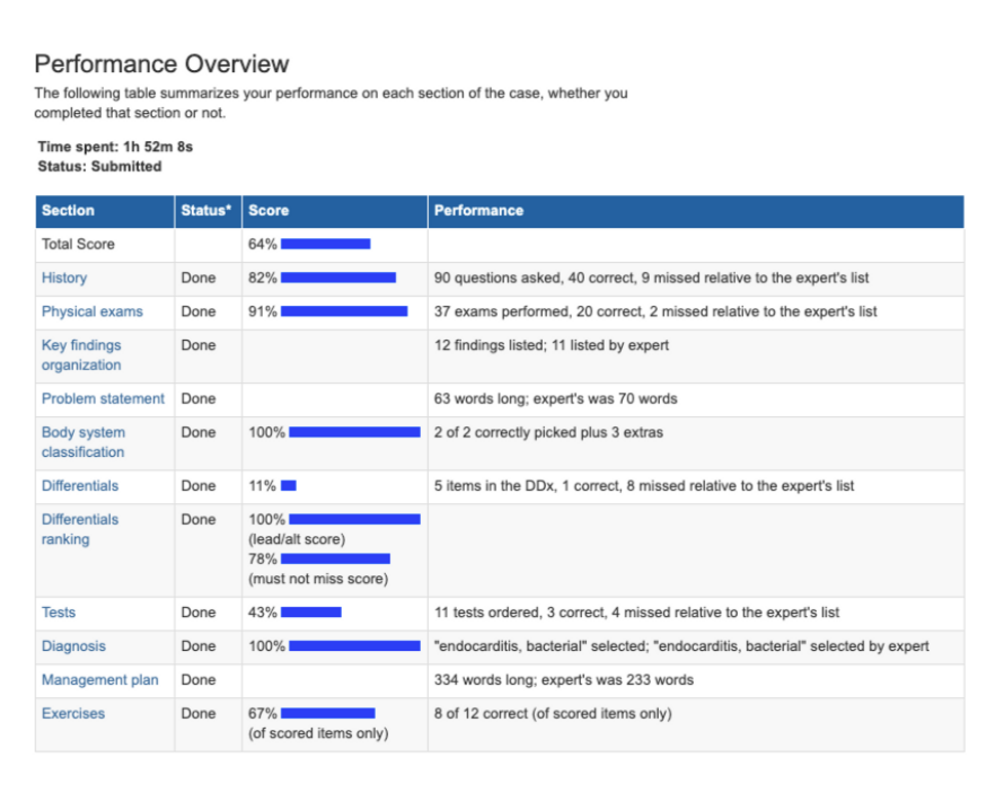
Individual Performance
Students and faculty can drill down to view detailed performance information.
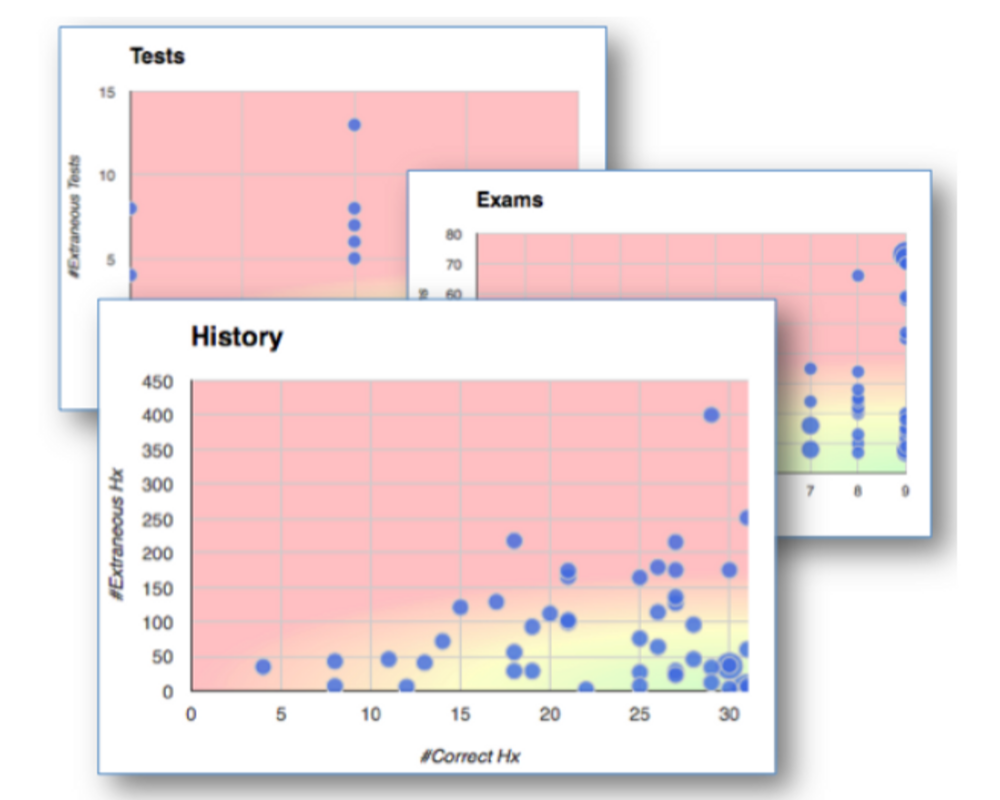
Group and Cohort Performance
Faculty can assess common areas of proficiency and deficiency across groups and cohorts.
Request a Demo
Learn How i-Human Patients can help you build diagnostic competency and clinical judgment skills in students. Enter your details below and our local program director will be in touch: